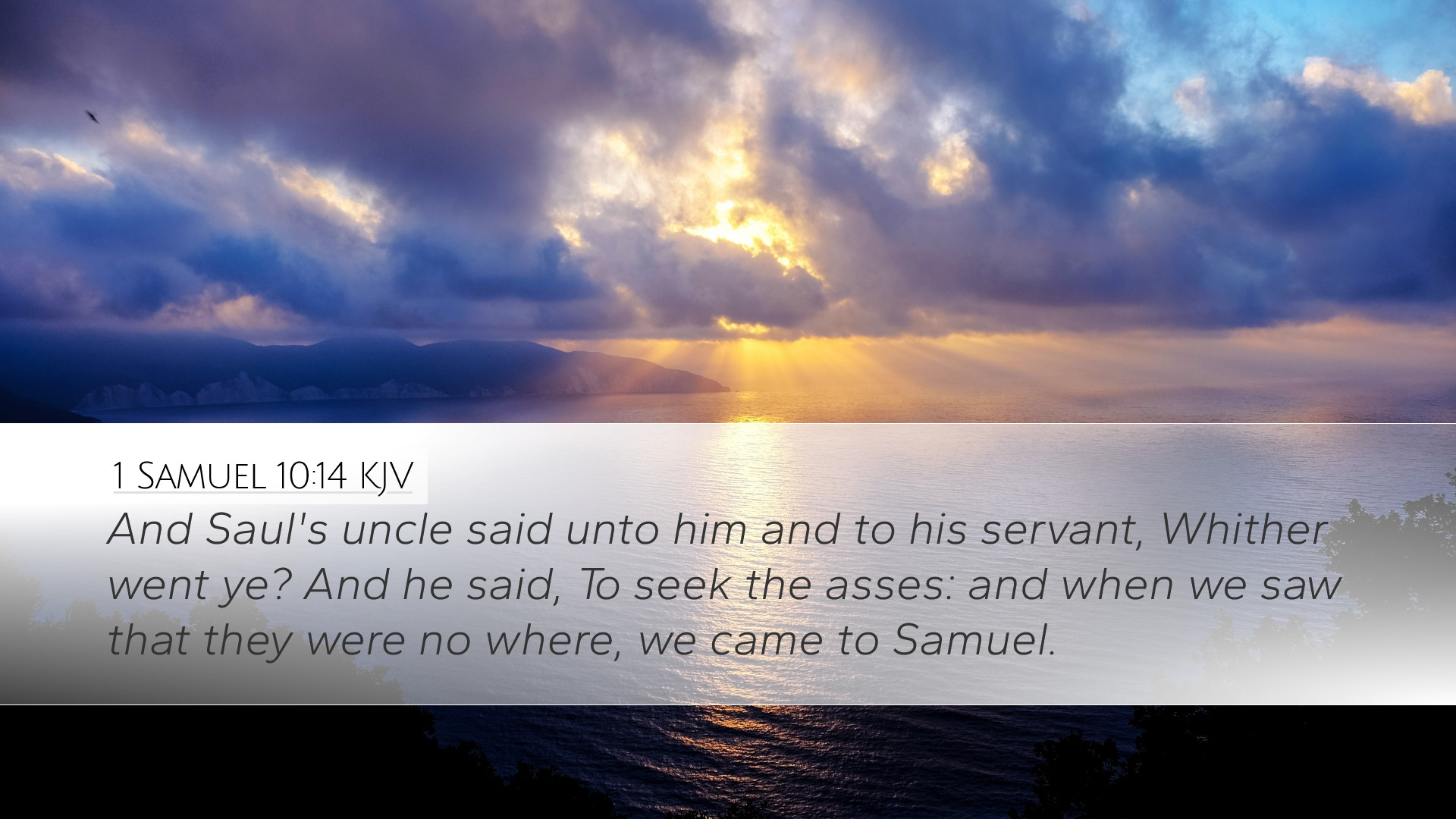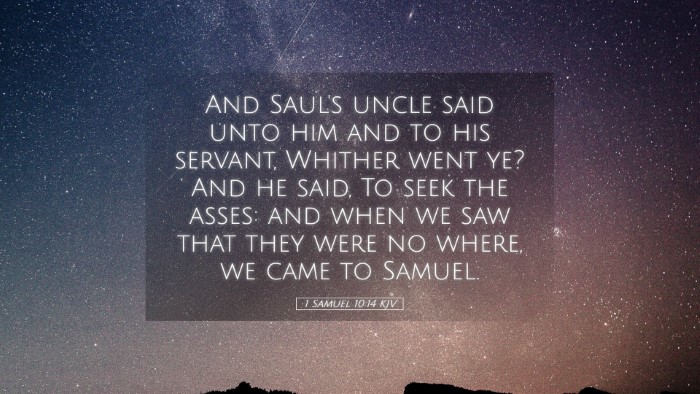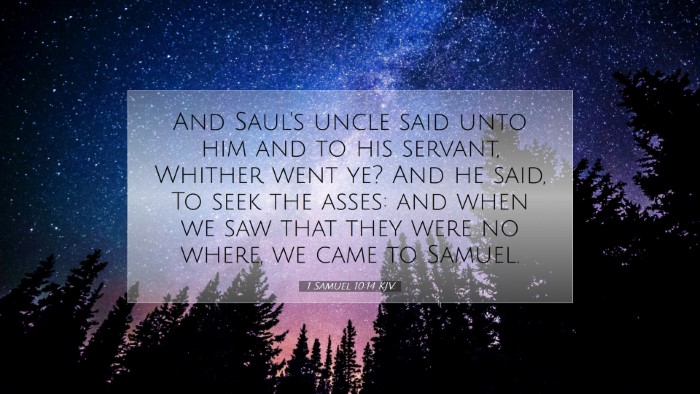Commentary on 1 Samuel 10:14
Verse Context: 1 Samuel 10:14 states, "And Saul's uncle said unto him, Tell me, I pray thee, what Samuel said unto you." This verse occurs shortly after Saul's anointment as king, highlighting the initial secrecy surrounding his divine selection and the subsequent need for clarity within his family.
Introduction
The narrative of Saul's anointment as king over Israel marks a significant transition in the biblical narrative. This passage provides insight into Saul's early response to his divine calling and his interaction with those around him, particularly his family. The exchange between Saul and his uncle can be unpacked to reveal layers of theological significance and practical application for contemporary readers.
Insights from Matthew Henry
- Divine Selection: Matthew Henry emphasizes that Saul's appointment was a divine act, orchestrated by God to fulfill Israel's desire for a king. He notes the importance of God's providence in Saul's journey.
- Saul's Humility and Fear: Henry comments on Saul's initial humility and his reluctance to share the full extent of his encounter with Samuel, symbolizing a godly fear of revealing God's mysteries too quickly.
- Family Dynamics: The conversation with his uncle highlights the role of immediate family in the spiritual and political calling of an individual. Henry points out that even as Saul begins his path as a leader, he remains connected to his familial roots.
Insights from Albert Barnes
- Questioning Identity: Barnes explicates the significance of Saul's uncle asking about Samuel's message. This question indicates a curiosity about Saul’s identity and vocation, suggesting that divine calling often leads to questions about purpose and destiny within community contexts.
- The Role of Confirmation: Barnes points out the importance of confirming one's call through dialogue with trusted individuals. Samuel’s words to Saul serve not just as a personal commission but also as a topic of communal discussion.
- Community Understanding: He also delves into the communal aspect of Saul's leadership. The question from his uncle serves as an early indicator of the public's engagement with Saul's new role, foreshadowing the challenges of leadership he would later face.
Insights from Adam Clarke
- Symbolism of Prophetic Encounter: Clarke draws attention to the symbolic weight of Saul's prophetic encounter with Samuel. This interaction represents the divine endorsement required for Saul’s future governance and signifies God's continual involvement in Israel's leadership.
- Reluctance of Saul: Clarke also notes Saul's reluctance to disclose the full details of his mission to his uncle. This is portrayed as a reflection of Saul's inner conflict and humility, underlining the challenges that come with divine appointment.
- Lessons in Transparency: He encourages readers to consider the balance between humility and the necessity of transparency in leadership, suggesting that while one must be careful with divine revelations, they must also navigate public perception responsibly.
Theological Reflections
The passage invites a deeper reflection on the nature of divine calling. It raises the question of how leaders are selected and recognized within their communities and challenges contemporary believers to consider their responses to God's call in their own lives.
Leadership and Community
A significant theme in this verse is the interplay between individual calling and communal recognition. The inquiries made by Saul's uncle underscore the essential role that community plays in affirming and understanding one's leadership. This can serve as a reminder to modern congregations about the importance of supportive relationships in recognizing and nurturing leadership potential.
The Role of Family
Another reflective point is the influence of family dynamics on one's journey. Saul's interaction with his uncle showcases the familial bonds that often shape one's identity and calling. It serves as a call for families today to engage in meaningful conversations about faith and vocation, fostering an environment where individuals can explore their divine purpose.
Conclusion
This commentary on 1 Samuel 10:14 provides meaningful insights into the themes of leadership, community, and divine calling. As pastors, students, and theologians reflect upon this passage, they are encouraged to consider the implications of Saul's story for their own contexts—acknowledging the complexity of responding to God’s call amid the dynamics of family and community.
Final Thoughts: The interaction between Saul and his uncle serves as a rich basis for understanding how God calls and equips individuals for leadership roles, encouraging discernment and openness within the fabric of community life.


